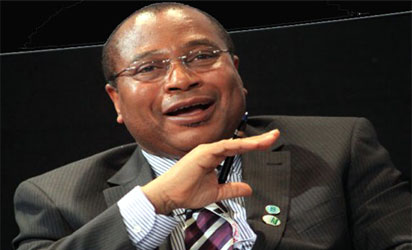………. Says there are 140m active GSM subscribers
The executive vice chairman, Nigerian Communications Commission (NCC) Dr. Eugene Juwah, has disclosed that active subscription to the telecommunication network in the country has reached 140 million mark, just as he also said that the country has achieved a teledensity of 100.59 per cent.
The NCC boss, who made the disclosures in Enugu during the NCC Day at the on-going 26th Enugu International Trade Fair, however regretted that telecommunication consumers are yet to optimize the opportunities provided by the commission, including the code of conduct regulations that provide how to engage the service providers to the consumers advantage.
“We do not want to bore you with the history about how poorly the nation performed in this industry until 2001; you are witnesses to the revolution that has taken place in the industry.
“But we need to inform you today that active subscription in the network has reached 140 million mark, and that Nigeria, as at January 2015, had achieved a teledensity of 100.59%.
“Teledensity is calculated by the International Tele-communications Union (ITU), to mean active line distribution of one telephone to a hundred of population. This is very remarkable achievement given where we have come from since 2001 when we had a teledensity of some 2.4 per cent”, said Juwah.
He said the country’s telecommunications network offers voice telephony and other services like internet banking, ATM services, online hotel reservations, flight booking and flight management.
He enumerated problems that affect telecommunication services to include poor power supply, multiple taxation and regulations and vandalisation of telecommunication infrastructure.

